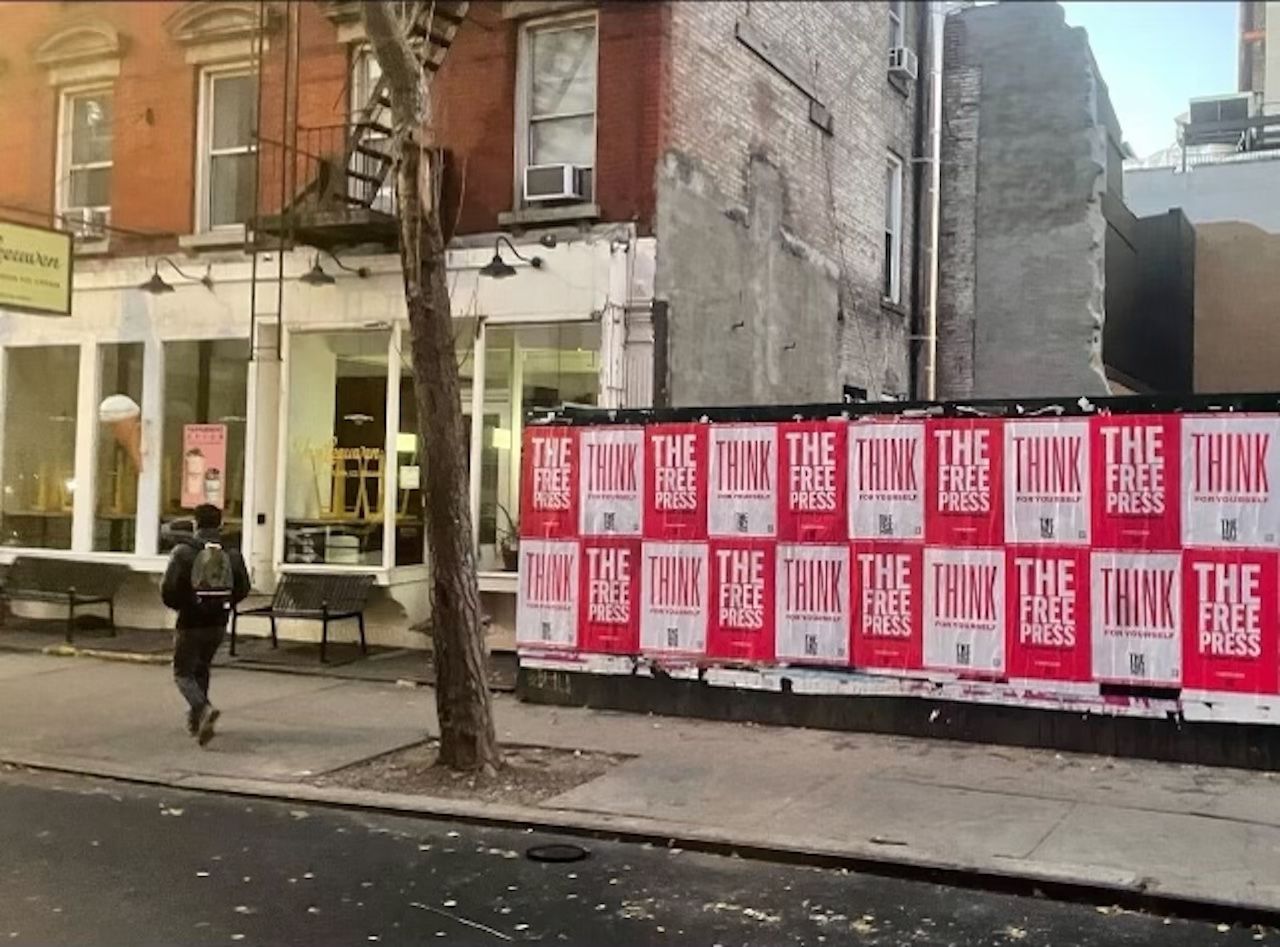Bari Weiss, the New York Times columnist turned independent newsletter writer, has hired ten full-time employees and over a dozen contractors to help build her new media company, The Free Press, Weiss told Axios in an interview.
Why it matters: The success of Weiss' Substack newsletter and podcast, both of which she launched last year after leaving The New York Times, shows there's an appetite for coverage that's meant to rebuke traditional media products.
- "I'm responding to a demand, and I'm expanding based on the hunger of the audience. And that hunger and appetite is just huge. We're at the very, very beginning of what this could be," Weiss said.
Driving the news: Weiss launched The Free Press last Thursday, four days ahead of schedule, to capitalize on the media coverage around her "Twitter Files" reporting.
- In less than a week, The Free Press has accrued more than 105,000 followers on Twitter and its flagship newsletter has added an additional 25,000 free and paid subscribers.
- Weiss' Twitter following itself has exploded in that time, growing from more than 500,000 followers to more than 900,000 in less than a week.
Weiss and her wife, Nellie Bowles, a co-founder of The Free Press"and former New York Times correspondent, have wasted no time supercharging growth.
- The company has already begun its first paid marketing campaign, which includes digital advertising and posters in cities such as Los Angeles, New York City and soon Austin and San Fransisco. "Up until now, we haven't spent a penny," Weiss said.

Catch up quick: Weiss left The New York Times as an op-ed columnist in July 2020, arguing she had become a victim of "a 'new McCarthyism' that has taken root at the paper of record." Bowles left The Times shortly after in 2021.
- The pair created The Free Press from their kitchen table in Los Angeles.
By the numbers: In January of 2021, Weiss launched Common Sense, a newsletter on Substack that's since amassed over 283,000 free and paid subscribers. (Common Sense has now been rebranded as The Free Press.)
- Weiss said her subscriber number has more than doubled since the beginning of the year, to 283,000, she said.
- Earlier this year, Weiss and Bowles raised a small family and friends funding round for The Free Press. Weiss declined to share how much was raised.
- Prior to that, the duo relied on subscription revenue from Weiss' newsletter, which costs $5 monthly. (It now costs $8 monthly under The Free Press umbrella.)
- Last year, Marketwatch reported that Weiss made over $800,000 from her newsletter alone, which at the time had 14,000 paid subscribers. The newsletter has more than double that number of paid subscribers today.
Of note: Weiss' newsletter and other Free Press email newsletters will continue to be sent using Substack, which also provided technical support for The Free Press website.
Details: Looking ahead, Weiss plans to launch a slate of newsletters and podcasts to accompany her own, all under the umbrella of The Free Press.
- She's hired several podcast producers, including Andy Mills, formerly a producer for The New York Times' flagship podcast "The Daily." More audio series will be coming in the new year, including a possible podcast debate show and long-form podcasts that will feel more like documentaries, she said.
- Weiss has already begun to hire full-time writers, including Olivia Reingold, who will cover politics and culture, and Rupa Subramanya.
- Those writers will join The Free Press' existing slate of journalists, which includes Bowles, as well as Peter Savodnik, Emily Yoffe and Suzy Weiss of The New York Post.
- Several other independent writers, including Katherine Boyle, a general partner at Andreessen Horowitz, and author and Substack writer Michael Shellenberger, are joining as regular columnists.
- In addition to newsletters and podcasts, Weiss said The Free Press plans to launch more products for paid subscribers specifically, such as subscriber-only events and discussion threads.
- Subscribers, Weiss said, will continue to be "at the heart of our business," although Weiss said she's open to exploring other forms of revenue like advertising and event sponsorships.
Between the lines: The Free Press joins a slew of news startups, including Semafor, Puck and Airmail, that have launched in recent years as digital updates of the kind of timely, scoopy, voice-driven coverage that print used to provide.
- The Free Press' website is meant to resemble old-fashioned broadsheet newspapers, Weiss said, and a bygone era of honest, dogged reporting.
The big picture: Weiss, alongside other independent writers like Matt Taibbi and Glenn Greenwald, are gaining newfound attention with Elon Musk's ownership of Twitter.
- "I think there's a lot of people in this country who are politically homeless, who feel like the old labels — Republican, Democrat, conservative, liberal — no longer fit them or no longer mean what they used to," Weiss said.







